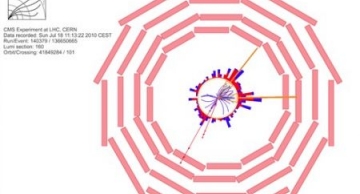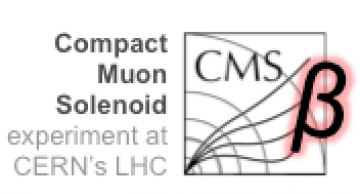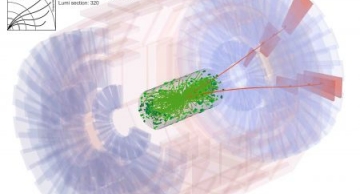The LHC provides CMS with millions of collisions each second, and a wealth of physics data is obtained from the proton-proton interactions. In order to record all these data for analyses, all CMS sub-detectors have to be performing optimally. If you…
News
|
lapka |
Collaboration
On Monday, 12th March 2012, 16 high-school students from Annecy, France awoke with excitement; they knew it was not going to be an ordinary day!
Although they live only 40 km away from CERN, the students had never visited the laboratory, and on this…
|
Anonymous |
External news (e.g. BBC)
As a young student, I was taught that mathematics is the language of physics. While largely true, one also cannot communicate in CMS at the CERN LHC without learning a plethora of acronyms. When we wrote the CMS Trigger and Data Acquistion System (…
|
achintya |
Physics
CMS has presented a rich variety of results at the Electroweak Interactions and Unified Theories sessions of the Rencontres de Moriond conference in La Thuile, Italy. Links to the Physics Analysis Summaries (PAS) from CMS made public in the last…
|
lucas |
Collaboration
Please tell us how we can improve the new CMS internal website by clicking on this 1-minute web survey at: https://cern.ch/cms
Please don't delay. We'll close the survey at the end of CMS Week and then start implementing missing features.
If you…
|
achintya |
Physics
At a CERN seminar today, CMS presented results for the search for new physics in the decay of Bs and B0 mesons to two muons, taking into account all of the 4.9 fb−1 of data collected in 2011. The results — upper limits of 7.7 x 10−9 (Bs) and 1.8 x…
|
achintya |
Collaboration
Google+, the social network by Google, allows users to participate in Hangouts — multi-user video calls. These Hangouts can even be streamed live via a feature called Hangouts On Air.
Barack Obama recently used such a Hangout to talk directly to the…
|
achintya |
Collaboration
Joe Incandela — CMS Spokesperson
Joe Incandela is a professor of Physics at the University of California, Santa Barbara (UCSB). His PhD under H. Frisch (Chicago) involved development and use of large area superconducting monopole detectors. His…
|
achintya |
Collaboration
CMS, one of the two gigantic international collaborations running experiments at the LHC, has recently appointed its new management. The new spokesperson and his two deputies are well aware of the pressure associated with holding such high positions…
|
achintya |
External news (e.g. BBC)
Scientists at the Large Hadron Collider (LHC) will increase the energies of the bunches of subatomic particles called protons that it smashes together.
|
achintya |
External news (e.g. BBC)
Today, operators of the world’s most powerful particle accelerator announced their plan for the 2012 run. The new schedule calls for the Large Hadron Collider (LHC), located near Geneva, Switzerland, to run at a collision energy of 8 tera-electron…









